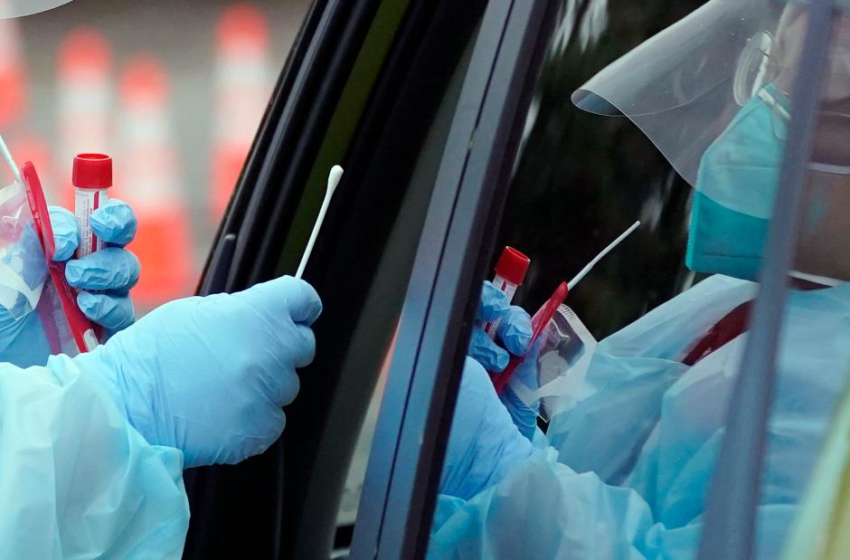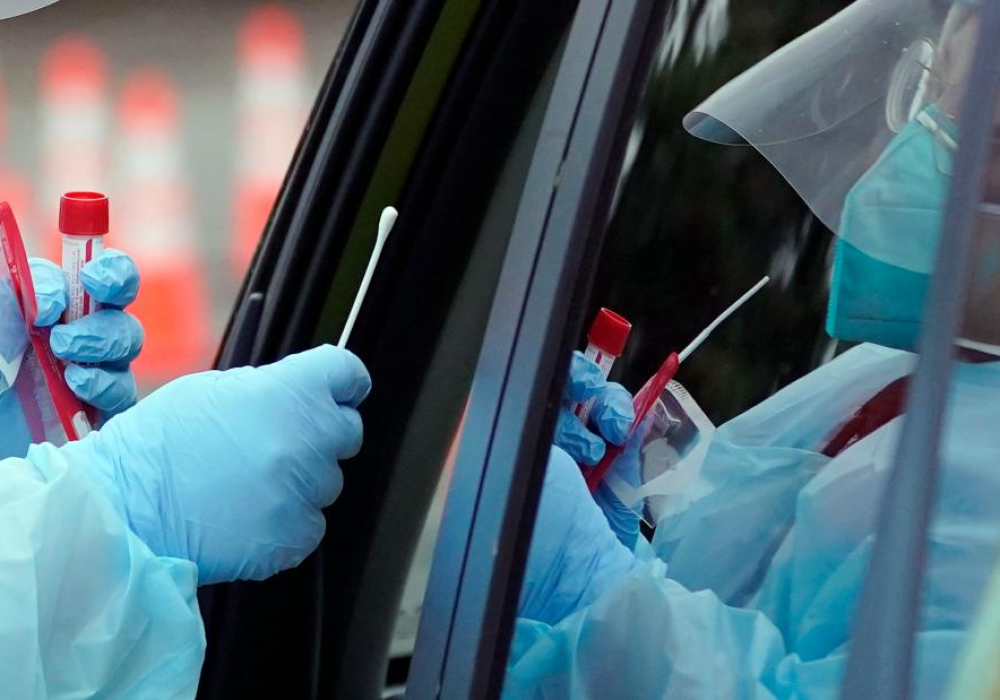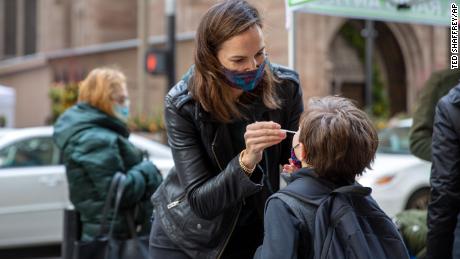Here’s what the experts say you should know.
I tested positive, but I feel fine. Should I still isolate?
“They base those guidelines on, now, two years of observations about what it means to be contagious,” Snyder said.
That CDC guidance changed in the last days of December. It now says people who test positive for Covid-19 should isolate for five days. After that, if they don’t have symptoms or if their symptoms are resolving — they are without fever for 24 hours without taking fever-reducing medication — they should follow that with five days of wearing a mask around others. The CDC says it’s optional to take an antigen test on day 5; if it’s positive, you should stay in isolation until day 10.
That should minimize the risk of spreading the virus. The likelihood that someone is contagious after 10 days is small if their symptoms have improved and their fever is gone, the experts say.
If you and the people around you wear masks, you’re taking the precautions that are appropriate regardless, he said.
“You don’t know who in your universe is infectious,” Cohen said. Just because someone had Covid five days ago doesn’t mean they should be considered more dangerous. “What about the guy next to you that never got tested that’s asymptomatic and has more copies than I do? We should act like we assume everybody has Covid.”
Am I now less likely to get Covid-19 again?
Infection provides some natural immunity from the coronavirus, but it’s not that simple.
“We often talk about immunity to this virus as if it’s a yes or no thing. You’re either immune or you’re not. But Mother Nature rarely operates like that,” said
Immunity is on a continuum. It can change over time.
Covid-19 is not the chickenpox, for example. “In chickenpox, you’re not going to get chickenpox again, but that’s, you know, a high bar,” said Cohen.
“I wish you can say, once you catch Covid, you never catch it again. This is not that kind of virus,” he said. “So we know with reinfection data, you don’t get immune to it just because you had in previous infection. There are some things you catch then never catch again, but this is one of those things where, yeah, you’re gonna keep getting it.”
But, the experts say, don’t go wild. Take precautions.
“I wouldn’t say anybody should feel comfortable, if they’ve had an infection, that they can go run around feeling like you’re immune from a reinfection or complications,” Snyder said. “It does offer some protection. I wouldn’t rely on it for 100% protection.”
At some point down the road, Wohl said, this coronavirus could be more like the common cold — another coronavirus — and people will get it every few years, but it may not be as serious, and there will be treatments that are easy to access. But those days are not here yet.
Does getting sick with one variant offer protection from another?
After any Covid-19 illness, your body is generally able to spot the coronavirus.
“No matter which variant, your body now is better able to recognize that virus in the future. It’s stronger; it’s better prepared,” Snyder said. But exactly how prepared isn’t quite clear.
The Delta and Omicron variants were in circulation around the holidays. Catching one of them could possibly still leave you vulnerable to the other.
“The degree of cross-protection from Delta and Omicron is not very well-known yet,” Cohen said. “It’s a complicated answer generally, but for a simplistic one, the answer is, having natural infection provides some immunity and probably provides some cross-immunity, but the magnitude of the cross-immunity is not known.”
If Omicron infection does make people less susceptible to Delta infections, that could be a good thing, the researchers noted. “If so, then the incidence of Covid-19 severe disease would be reduced and the infection may shift to become less disruptive to individuals and society,” Alex Sigal and Khadija Khan of the Africa Health Research Institute in Durban, South Africa, and colleagues wrote in their report.
But remember, there’s no telling what other variants may crop up after these, or how different they might be from Delta or Omicron.
What if I got sick but hadn’t been vaccinated or boosted? Do I still need a shot?
The experts say yes.
With this particular coronavirus, your immune response is better with a vaccine than with a natural infection, Vermund said. It’s not totally clear why.
Studies on Covid-19 reinfection show this to be true. Reinfection was more common in someone who had natural immunity than in someone who was vaccinated.
“The odds are much lower if you’ve had a vaccine — not even boosted, just vaccinated — of getting reinfected compared to if you had not been vaccinated and been infected before,” Wohl said.
“We encourage anybody who’s had infection to still get vaccinated because vaccination helps the body prepare by making a more robust set of antibodies,” Snyder said. “They bind more strongly, and especially the boosters are broader. They’re able to recognize differences in the virus.”
After a vaccine, any reinfection would probably produce a much less serious illness.
What if I was boosted and then got Covid? Can I throw caution to the wind afterward?
If you’ve had a breakthrough infection, your immune system is well-primed and ready to fight the coronavirus when it encounters it again, Wohl said. Your body should be better prepared if you encounter Omicron again, but there’s no absolute guarantee that you’d be protected if, for example, you waded into an unmasked crowd at a concert.
“We are in the middle of the surge of surges. This is the worst time to be out there unmasked and around other people’s noses and throats,” Wohl said.
Plus, again, you can’t be sure that the virus you come into contact with will be the same variant you caught before.
“The reason why the person who’s had Covid and boosted still wants to use common sense is because we don’t understand yet what other variants will be out there and how they will react to them,” Cohen said.
Can I get long Covid after Omicron? Or could my kids get MIS-C?
The Omicron variant is too new for experts to know anything about its long-term effects.
“We don’t know yet,” Snyder said. “It’s too soon to know.”


















